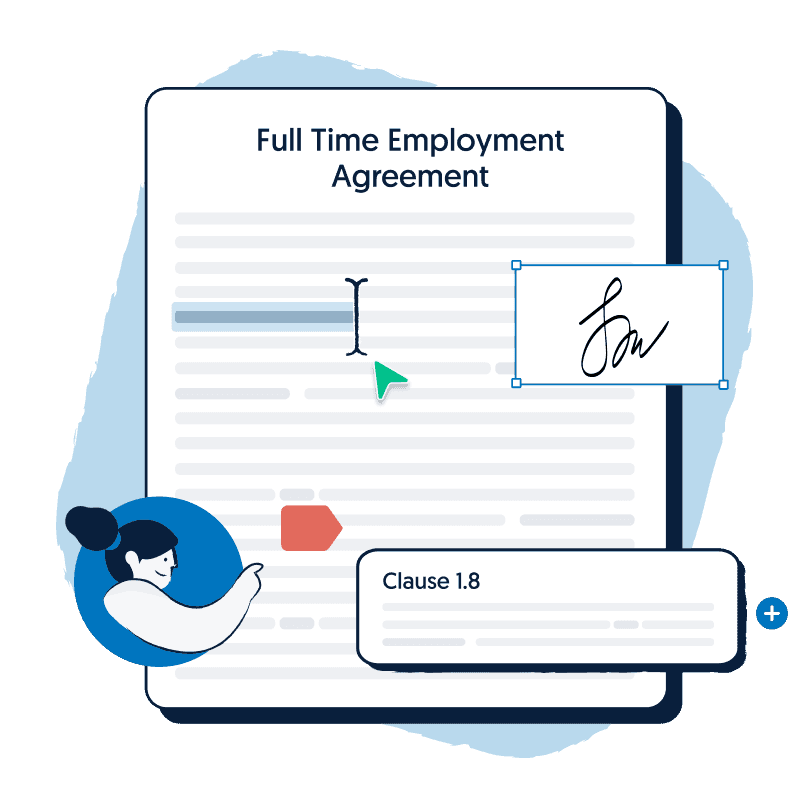Summer clerk at NSW Department of Communities and Justice, formerly Legal Tech Intern at Lawpath.
💡 Key insights
- Employers can sometimes read an employee’s private work messages if the employer has clearly communicated a legitimate policy that explains monitoring and the employee has given informed consent.
- Simply having access to messaging platforms does not automatically give an employer the right to read private messages if there is no policy or employee awareness about monitoring.
- Privacy and workplace laws require that any monitoring of private work messages must be reasonable, necessary for business purposes and proportionate so it does not unreasonably invade personal privacy.
- Employers should have clear written policies on communication and privacy that tell employees what may be monitored and why, and ensure those policies are consistently applied to reduce legal risk.
In New South Wales, it is legal for employers to check employee’s private work messages. This could include emails, social media messages and messages via platforms like Slack. For more information on workplace privacy rights in other Australian states, click here.

Get your Full Time Employment Agreement legal document for free.
Workplace Surveillance Notice
The Workplace Surveillance Act 2005 is a piece of legislation which directly overlooks when and how an employer can read an employee’s private wor messages. This legislation requires that employers give at least 14 days of notice before surveillance starts. Sometimes there will be a new employee who will be under surveillance in less than 14 days. In this case, the employer must give notice to the employee before the first time they work. The notice must provide details about:
- The type of surveillance (e.g. CCTV, monitoring work messages)
- How the surveillance will be carried out
- The start date of surveillance
- Whether the surveillance will be continuous or every so often
- Whether the surveillance will be for a specific time period, or, whether it will be ongoing monitoring
Additionally, the Workplace Surveillance Act requires that any form of computer surveillance must be in line with the company’s policy on surveillance. Staff must also have reasonable notice of this policy to ensure that what and how they will be monitored.
The Business’ IT Policy
Employers have the right to use what they have collected from their surveillance to terminate an employee’s employment. They can terminate employment for misuse of work communication services, company technology etc. To have a better understanding of what determines misuse, it is best to refer to your employer’s IT policy.
Most businesses will have an IT policy that will govern what is appropriate use and what is inappropriate use of company technology and messaging services. For example, some company’s may not allow employees to use their work email or work phone to send personal communications.
If you own a business which does not have an IT policy in place, it may be worth looking into. The Fair Work Ombudsman recommends that businesses have an IT policy in place for their staff. An IT policy is beneficial in that both employers and employees clearly understand their rights and responsibilities when it comes to using technology in the workplace. For further information about the benefits of adopting an IT policy, click here. You can easily create an IT policy for your business using a customisable template found here. Some things that you can address in your business’ IT policy include:
- What activity is prohibited (such as websites which should not be accessed, or, types of messages which should not be sent)
- The extent to which personal use of technology is appropriate during work
- Which staff have the right to access surveillance to read emails, private work messages, internet history etc.
- The potential consequences of misuse of technology
Summary
Ultimately, employers are legally allowed to monitor your private work messages given that they have provided the employee with 14 days notice. However, the company’s IT policy will provide more information on how your work communications can be monitored.
For a better understanding of a company’s IT policy, or, to create one that suits your company, it is best to consult a business lawyer who can provide you with tailored advice on your specific situation.

Get a fixed-fee quote from Australia's largest lawyer marketplace.






